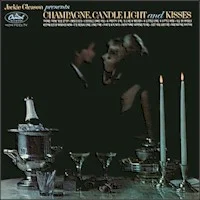Time: 62:54
Size: 144.0 MB
Styles: Progressove Bluegrass
Year: 2017
Art: Front
[6:23] 1. The Old Shade Tree
[5:53] 2. Tallahassee Junction
[6:02] 3. Scarlet Town
[6:59] 4. I Cover The Waterfront
[3:08] 5. Independence Day
[4:50] 6. Noise Machine
[5:26] 7. The Watcher
[8:59] 8. Daughter Of Eve
[4:49] 9. Marcie
[6:00] 10. Don't Think Twice It's Alright
[4:22] 11. Tabhair Dom Do Lámh
Other than the album's genre-crossing premise, there's nothing particularly gimmicky or flashy about bluegrass singer/songwriter Chris Thile and jazz pianist Brad Mehldau's 2017 Nonesuch collaboration, Chris Thile & Brad Mehldau. Simply put, Thile and Mehldau deliver a set of deeply engaging, organically realized songs that perfectly balance their respective jazz and bluegrass skills. Given that they seemingly come from polar ends of the musical spectrum, the collaboration may feel like an odd choice at first. However, after hearing this debut, one might be hard-pressed to imagine a more compatible duo to emerge from their generation than these two distinctive mavericks. The similarities have always been there; both musicians started out as purist arbiters of their prospective roots-based genres, but later transitioned into leading proponents of their own progressive, harmonically nuanced musical ideologies. Thile broke the mold when he started incorporating pop, folk, and traditional bluegrass with Nickel Creek, a permutable instinct later underlined with his nods to rock and fusion with the Punch Brothers. Similarly, while Mehldau is often justifiably compared to jazz icons like Keith Jarrett and Bill Evans, his reconceptualization of alt-rock hits by Radiohead and Nirvana, combined with his deft improvisational skill, long marked him as a gentle jazz radical. This inkling that both artists shared a philosophical and aesthetic sensibility is apparently exactly what motivated executive producer and label president Robert Hurwitz to introduce the two to each other after a Punch Brothers show several years prior to this album. Subsequently, Thile and Mehldau began playing together casually, purportedly developing a strong rapport. Based on the songs here, that rapport sounds effortless, as they warmly intertwine both their instruments and voices on covers like a rambling take on Bob Dylan's "Don't Think Twice, It's All Right" and an evocative reworking of Joni Mitchell's "Marcie." One minute, Mehldau is framing Thile's yearning vocals in soft, velvety chords and the next, Thile is comping with furious intensity on his mandolin as Mehldau launches into a cascading solo. The duo's original songs are also quite fascinating, particularly the Eric Clapton-esque "The Old Shade Tree" and the poetic, classically inflected "Noise Machine," inspired by the recent birth of Thile's first child. These are deeply hued, literate songs, as personal as anything either artist has done, yet delivered with an almost startlingly robust virtuosity. Even when they defy expectations, as when Thile sets down his mandolin for a piano-accompanied reading of the standard "I Cover the Waterfront," or when they eschew lyrics for an instrumental version of Elliott Smith's "Independence Day," there's a palpable sense of real listening, of generously shared creativity. Ultimately, it's that synergistic spark that makes Thile and Mehldau's collaboration sound less like a one-off experiment and more like the start of a lasting partnership. ~Matt Collar
Chris Thile & Brad Mehldau mc
Chris Thile & Brad Mehldau zippy




















